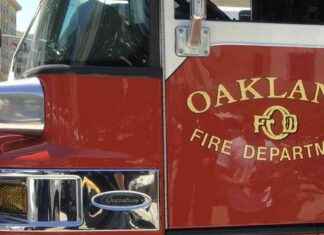The entire population of Nagorno-Karabakh, an unrecognized autonomous region located within the borders of Azerbaijan, could flee the enclave in the coming hours and take refuge in Armenia, the United Nations refugee agency believes. The organization announced that it is preparing to receive up to 120,000 refugees in Armenia following the lightning offensive carried out by Azerbaijan in Karabakh, which caused a mass exodus of the ethnic Armenian population.
“The initial planning figures were between 70,000 and 90,000 refugees, but they need to be updated,” Kavita Belani, UNHCR representative in Armenia, said at a press conference. The attack forced the Karabakh authorities to agree to lay down their arms and begin talks on the integration of the Karabakh population. After falling under the control of Baku, the unrecognized authority of Karabakh announced yesterday the dissolution of its state institutions. Azerbaijan has promised guarantees to the ethnic Armenian population who decide to stay in the region and has reiterated that it will treat them as full citizens just like Azerbaijanis.
However, the majority of the population doubts Baku’s promises and fears retaliation against the population. Since last Sunday, an endless line of vehicles has formed on the Lachin highway, the only one that connects Karabakh with Armenia, of thousands of families trying to find shelter in the neighboring country. Last Monday, an explosion occurred at a gas station on this road, at a very busy time when hundreds of people were queuing to fill their tanks to reach Armenia. At least 170 people died and more than a hundred were seriously injured by the explosion, the origin of which is still unknown. Some 93,000 refugees have crossed the border so far, 75% of the population, according to data from the Armenian authorities.
Precisely this Lachin road was blocked by the Azerbaijani authorities in January, preventing the entry of food, medicine and gasoline to the Karabakh enclave. These nine months of scarcity seriously worsened the living conditions of the inhabitants of the enclave. “People are very tired. This is a situation they have lived in for nine months. When they enter (Armenia) they are full of anxiety, they are afraid and they want answers about what will happen next,” described UNHCR’s Belani. “The situation often affects families who arrive with children so weak that they have fainted in their parents’ arms,” ??Hicham Diab, a representative of the Red Crescent, said at a press conference.
Azerbaijan declared today that it will allow a group of UN experts to enter the territory in the coming days, to monitor its treatment of the ethnic Armenian population.
Another unknown that is expected to be resolved in the coming days is what will happen to the 2,000 Russian soldiers deployed in the enclave as part of a ceasefire agreement between Azerbaijan and the Karabakh Armenian forces after the 2020 war. “Since the mission is now on Azerbaijani territory, this will be a topic of discussion with the Azerbaijani side,” Kremlin spokesman Dmitri Peskov told reporters. Although Moscow had deployed its forces to ensure the cessation of hostilities in the enclave, Armenia has criticized its inaction during Azerbaijan’s latest military offensive. Peskov assured that Russia had no legal reasons to intervene and noted that he sees “no direct reason” for ethnic Armenians to flee Karabakh.






